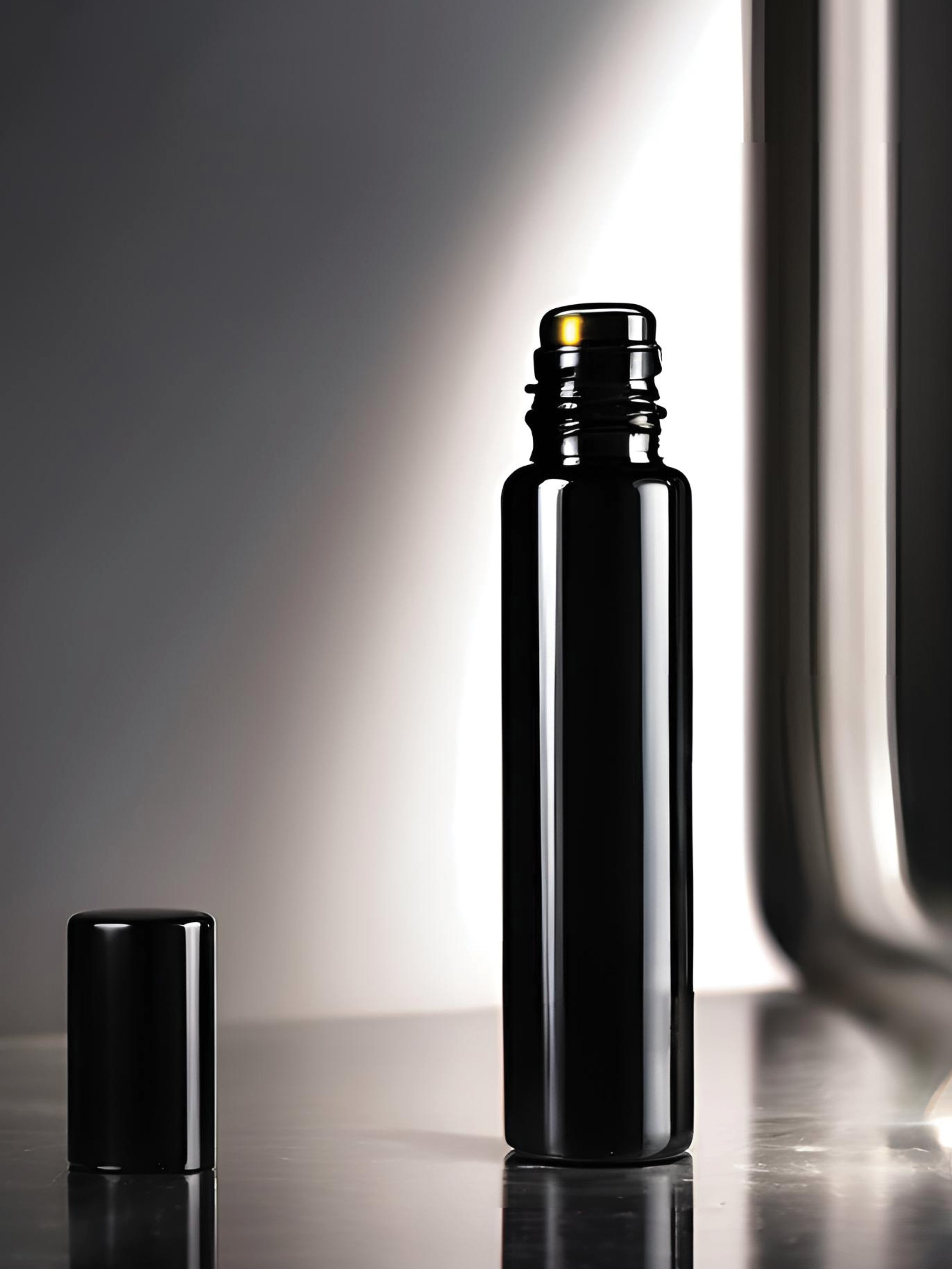 Image 1 of 2
Image 1 of 2

 Image 2 of 2
Image 2 of 2



LILAC ABSOLUTE OIL
Syringa vulgaris, commonly known as the lilac, is a flowering plant that is often admired for its beautiful blossoms and captivating fragrance. While lilac essential oil is not as widely available or studied as some other essential oils, it is possible to extract oil from lilac flowers using various methods, such as steam distillation or solvent extraction. However, it's important to note that lilac essential oil is not commonly found in the market, and synthetic fragrances are often used to replicate its scent instead.
Regarding the potential benefits and uses of lilac essential oil in aromatherapy, it's important to mention that scientific research specific to this oil is limited. Nevertheless, here are some general claims and traditional uses associated with lilac essential oil:
Aromatherapy Benefits: Lilac essential oil is often used in aromatherapy to create a soothing and calming atmosphere. The sweet and floral fragrance of lilac is believed to promote relaxation, reduce stress, and uplift mood. Inhaling the aroma of lilac essential oil may potentially evoke feelings of happiness and tranquility.
Respiratory Support: Some people use lilac essential oil as an expectorant, believing that it may help relieve respiratory issues such as coughs, congestion, and bronchitis. The inhalation of lilac essential oil might provide a refreshing effect on the respiratory system.
Mood Enhancement: The pleasant scent of lilac is often associated with nostalgia and happy memories. It is believed that using lilac essential oil in aromatherapy may help enhance mood, promote emotional well-being, and alleviate symptoms of anxiety and depression.
Sleep Aid: Due to its calming properties, lilac essential oil may be used as part of a bedtime routine to promote relaxation and improve sleep quality. Diffusing the oil in the bedroom or using it in a relaxing bath before sleep may create a soothing environment conducive to restful sleep.
It's important to exercise caution when using essential oils, including lilac essential oil, as some individuals may have sensitivities or allergies to certain oils. It is advisable to perform a patch test on a small area of skin and dilute the essential oil properly before using it topically or for inhalation. If you have any specific health concerns or conditions, it's best to consult with a qualified aromatherapist or healthcare professional before using lilac essential oil.
Syringa vulgaris, commonly known as the lilac, is a flowering plant that is often admired for its beautiful blossoms and captivating fragrance. While lilac essential oil is not as widely available or studied as some other essential oils, it is possible to extract oil from lilac flowers using various methods, such as steam distillation or solvent extraction. However, it's important to note that lilac essential oil is not commonly found in the market, and synthetic fragrances are often used to replicate its scent instead.
Regarding the potential benefits and uses of lilac essential oil in aromatherapy, it's important to mention that scientific research specific to this oil is limited. Nevertheless, here are some general claims and traditional uses associated with lilac essential oil:
Aromatherapy Benefits: Lilac essential oil is often used in aromatherapy to create a soothing and calming atmosphere. The sweet and floral fragrance of lilac is believed to promote relaxation, reduce stress, and uplift mood. Inhaling the aroma of lilac essential oil may potentially evoke feelings of happiness and tranquility.
Respiratory Support: Some people use lilac essential oil as an expectorant, believing that it may help relieve respiratory issues such as coughs, congestion, and bronchitis. The inhalation of lilac essential oil might provide a refreshing effect on the respiratory system.
Mood Enhancement: The pleasant scent of lilac is often associated with nostalgia and happy memories. It is believed that using lilac essential oil in aromatherapy may help enhance mood, promote emotional well-being, and alleviate symptoms of anxiety and depression.
Sleep Aid: Due to its calming properties, lilac essential oil may be used as part of a bedtime routine to promote relaxation and improve sleep quality. Diffusing the oil in the bedroom or using it in a relaxing bath before sleep may create a soothing environment conducive to restful sleep.
It's important to exercise caution when using essential oils, including lilac essential oil, as some individuals may have sensitivities or allergies to certain oils. It is advisable to perform a patch test on a small area of skin and dilute the essential oil properly before using it topically or for inhalation. If you have any specific health concerns or conditions, it's best to consult with a qualified aromatherapist or healthcare professional before using lilac essential oil.
Syringa vulgaris, commonly known as the lilac, is a flowering plant that is often admired for its beautiful blossoms and captivating fragrance. While lilac essential oil is not as widely available or studied as some other essential oils, it is possible to extract oil from lilac flowers using various methods, such as steam distillation or solvent extraction. However, it's important to note that lilac essential oil is not commonly found in the market, and synthetic fragrances are often used to replicate its scent instead.
Regarding the potential benefits and uses of lilac essential oil in aromatherapy, it's important to mention that scientific research specific to this oil is limited. Nevertheless, here are some general claims and traditional uses associated with lilac essential oil:
Aromatherapy Benefits: Lilac essential oil is often used in aromatherapy to create a soothing and calming atmosphere. The sweet and floral fragrance of lilac is believed to promote relaxation, reduce stress, and uplift mood. Inhaling the aroma of lilac essential oil may potentially evoke feelings of happiness and tranquility.
Respiratory Support: Some people use lilac essential oil as an expectorant, believing that it may help relieve respiratory issues such as coughs, congestion, and bronchitis. The inhalation of lilac essential oil might provide a refreshing effect on the respiratory system.
Mood Enhancement: The pleasant scent of lilac is often associated with nostalgia and happy memories. It is believed that using lilac essential oil in aromatherapy may help enhance mood, promote emotional well-being, and alleviate symptoms of anxiety and depression.
Sleep Aid: Due to its calming properties, lilac essential oil may be used as part of a bedtime routine to promote relaxation and improve sleep quality. Diffusing the oil in the bedroom or using it in a relaxing bath before sleep may create a soothing environment conducive to restful sleep.
It's important to exercise caution when using essential oils, including lilac essential oil, as some individuals may have sensitivities or allergies to certain oils. It is advisable to perform a patch test on a small area of skin and dilute the essential oil properly before using it topically or for inhalation. If you have any specific health concerns or conditions, it's best to consult with a qualified aromatherapist or healthcare professional before using lilac essential oil.
-
INCI NAME: Syringa Vulgaris (Lilac) Extract Oil.
ORIGIN: Bulgaria.
Bottled in Hawai’i.
PART USED: Flowers.
EXTRACTION METHOD: Our range of absolutes has been extracted using modernized technology similar to the ancient method of Enfleurage. The extraction process uses only certified organic solvents, such as fixed oils and alcohol, to coax the aromatic essence out of the plant material. The multi-step process includes first extracting the aromatic oil from the plant material using organic solvents such as fixed oils. After the solvent is removed, what is left behind is a waxy substance called concrete. The aromatic oils are then extracted from the concrete with ethyl alcohol; after the ethyl alcohol is removed, the remaining substance is absolute.
NOTE CLASSIFICATION: Middle Note.
-
Lilac essential oil, although not widely available, is known for its sweet and floral aroma. When it comes to blending lilac essential oil with other oils, here are some suggestions that may complement its fragrance:
Lavender: Lavender essential oil has a calming and soothing scent that can blend harmoniously with lilac. Together, they can create a relaxing and peaceful atmosphere.
Geranium: Geranium essential oil has a floral aroma with a hint of sweetness. Combining it with lilac can enhance the overall floral bouquet and add a touch of complexity to the blend.
Ylang Ylang: Ylang ylang essential oil has a rich and exotic floral scent. When blended with lilac, it can create a captivating and sensual aroma.
Jasmine: Jasmine essential oil is renowned for its intensely floral fragrance. Pairing it with lilac can result in a heady and romantic blend.
Rose: Rose essential oil has a classic floral scent that is often associated with beauty and elegance. Mixing it with lilac can create a luxurious and feminine aroma.
Remember, blending essential oils is a personal preference, and it's essential to experiment with different combinations to find the scent that resonates with you the most. Additionally, always ensure to dilute essential oils properly and follow safety guidelines when using them.
-
They can be inhaled directly from the bottle, diffuser, or humidifier.
They should be diluted with a carrier oil when applied to your skin. We suggest a 4% dilution rate.
You can also add them to your favorite skincare products.
Essential oils are not safe for consumption unless you are under a health practitioner's guidance.
-
100% Pure Essential Oil.
Unrefined, Undiluted, No Fillers, No Synthetics, Organic, and Sustainably sourced.
-
0.33 oz / 10 ml
Amber glass bottle with euro dropper.
-
Keep out of reach of children. The bottles are a choking hazard. Avoid contact with eyes, inner ears, mucous membranes, and sensitive areas. If you are pregnant, nursing, taking medication, or have a medical condition, consult a health professional prior to use.
Animals are more sensitive to certain scents; consider your pets while choosing essential oils.
While not all essential oils have the same effect on everyone, the key is finding which ones work best for you. You are the individual and know what is best for you. So experiment and find your path.
The products described on this website are not intended to diagnose, treat or prevent any disease or to affect any structure or function of the skin or body. The information on this website is not medical advice and is not a substitute for consulting with a healthcare provider.




